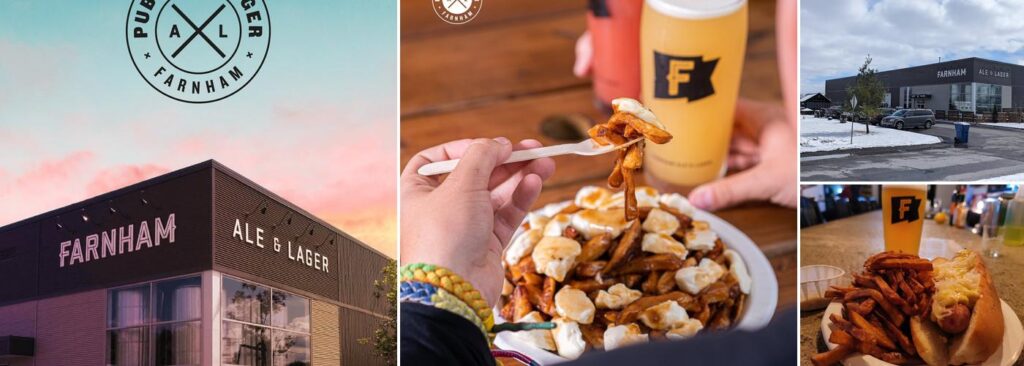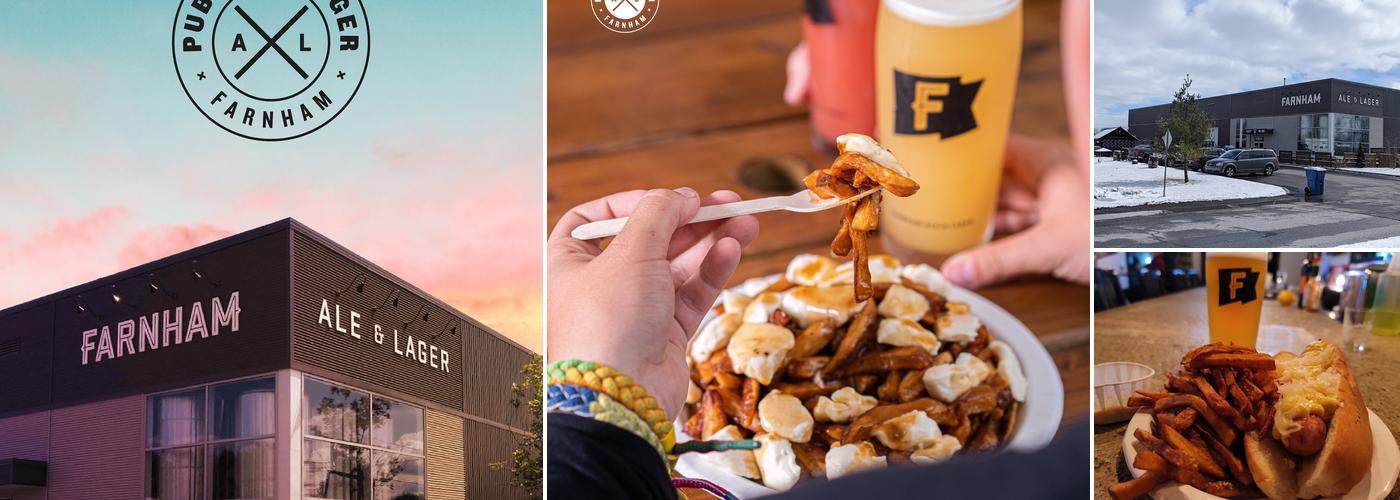
Farnham Ale and Lager: A Deep Dive into Surrey’s Brewing Heritage
Farnham, a historic market town in Surrey, England, boasts a rich brewing heritage. For centuries, the town has been synonymous with high-quality Farnham Ale and Lager, a testament to its unique geographical advantages and brewing traditions. This article delves into the history, production, and enduring appeal of Farnham Ale and Lager, exploring what makes it a distinctive part of British brewing culture.
A History Steeped in Hops: Farnham’s Brewing Origins
Farnham’s brewing history is inextricably linked to its hop-growing past. The town’s sandy soil and favorable climate proved ideal for cultivating hops, particularly the renowned Farnham White Bine variety. This hop, known for its delicate aroma and high alpha acid content, became a cornerstone of Farnham Ale and Lager production. The abundance of locally grown hops attracted brewers to the area, establishing Farnham as a significant brewing center by the 18th century.
The presence of natural springs also played a crucial role. The clear, mineral-rich water was perfectly suited for brewing, further enhancing the quality and character of Farnham Ale. The combination of excellent hops and water gave Farnham-brewed ales a distinctive flavor profile that was highly sought after.
The Rise of Farnham’s Breweries
Numerous breweries flourished in Farnham throughout the 18th and 19th centuries. These breweries ranged from small, family-run operations to larger, more industrialized establishments. They produced a variety of beers, but Farnham Ale remained the most popular and widely recognized. The ale was known for its pale color, crisp bitterness, and refreshing drinkability. Its popularity extended beyond Surrey, with Farnham Ale being shipped to London and other parts of England.
The arrival of the railway in the mid-19th century further boosted Farnham’s brewing industry. It provided a faster and more efficient means of transporting beer to distant markets, allowing Farnham Ale and Lager to reach a wider audience. This period saw a significant expansion of brewing operations in the town.
The Introduction of Lager: A New Chapter
While Farnham Ale was the traditional brew, the late 19th and early 20th centuries witnessed the introduction of lager to the UK. Lager, with its cleaner, crisper taste, gained popularity, and some Farnham breweries adapted to meet the changing consumer preferences. This led to the production of Farnham Lager, brewed using traditional lager brewing techniques but often incorporating locally grown hops for a distinctive Farnham twist. The introduction of refrigeration technology was crucial for the successful brewing of lager, as it required colder fermentation temperatures than ale.
The Decline and Revival of Farnham’s Brewing Industry
Like many traditional brewing centers in Britain, Farnham experienced a decline in its brewing industry during the 20th century. Factors such as consolidation of breweries, changing consumer tastes, and the rise of national beer brands contributed to this decline. Many of Farnham’s historic breweries closed their doors, and the town’s brewing heritage seemed to be fading.
However, in recent years, there has been a resurgence of interest in local and craft brewing, leading to a revival of Farnham Ale and Lager production. New breweries have emerged in and around Farnham, dedicated to preserving and celebrating the town’s brewing traditions. These breweries often focus on using locally sourced ingredients, including Farnham hops, and brewing traditional styles of ale and lager.
Modern Farnham Ale and Lager: Keeping the Tradition Alive
Today, Farnham Ale and Lager are experiencing a renaissance. Several breweries are actively producing beers that pay homage to the town’s brewing heritage. They are using both traditional recipes and modern brewing techniques to create ales and lagers that capture the essence of Farnham’s brewing past. These beers are often available in local pubs and restaurants, as well as at beer festivals and other events.
The use of Farnham hops remains a key element in many of these beers. Brewers recognize the unique characteristics of Farnham hops and strive to incorporate them into their brews, contributing to the distinctive flavor profile of Farnham Ale and Lager. The connection to local agriculture is an important aspect of the modern brewing scene in Farnham.
Key Characteristics of Farnham Ale
Traditionally, Farnham Ale is characterized by:
- A pale golden color
- A crisp, bitter flavor
- A refreshing drinkability
- A delicate aroma derived from Farnham hops
- A moderate alcohol content
Key Characteristics of Farnham Lager
Farnham Lager, while adopting the clean and crisp characteristics of lager in general, often features:
- A light golden color
- A clean, crisp taste with subtle hop notes
- A smooth finish
- Often uses Farnham hops to give it a local character
- A moderate alcohol content, making it sessionable
Where to Find Farnham Ale and Lager
If you’re looking to sample Farnham Ale and Lager, here are some places to start:
- Local Pubs: Many pubs in and around Farnham proudly serve locally brewed ales and lagers.
- Brewery Taprooms: Visit the taprooms of local breweries to sample their latest offerings and learn about the brewing process.
- Beer Festivals: Keep an eye out for beer festivals in the area, where you’re likely to find a selection of Farnham Ale and Lager.
- Online Retailers: Some online retailers specialize in craft beers and may carry Farnham Ale and Lager.
The Future of Farnham’s Brewing Heritage
The future of Farnham Ale and Lager looks promising. The growing interest in local and craft brewing, combined with the dedication of local brewers to preserving the town’s brewing traditions, suggests that Farnham will continue to be a significant brewing center for years to come. The emphasis on using locally sourced ingredients, particularly Farnham hops, will help to maintain the distinctive character of Farnham Ale and Lager.
The success of Farnham Ale relies on the continued cultivation of Farnham hops. [See also: Hop Farming in Surrey] Supporting local hop farmers is crucial to ensure the availability of this key ingredient. Furthermore, promoting Farnham’s brewing heritage through tourism and education can help to raise awareness and appreciation for the town’s brewing traditions.
The story of Farnham Ale and Lager is a testament to the enduring power of tradition and the importance of local ingredients. As long as brewers continue to embrace these values, Farnham Ale and Lager will remain a cherished part of British brewing culture.
The Importance of Supporting Local Breweries
Supporting local breweries that produce Farnham Ale and Lager has several benefits:
- Economic Benefits: It supports local businesses and creates jobs in the community.
- Environmental Benefits: Local breweries often use locally sourced ingredients, reducing transportation costs and environmental impact.
- Cultural Benefits: It helps to preserve local brewing traditions and maintain the unique character of Farnham Ale and Lager.
- Quality Benefits: Local breweries often focus on producing high-quality, handcrafted beers with unique flavor profiles.
By choosing to drink Farnham Ale and Lager from local breweries, you are contributing to the economic, environmental, and cultural well-being of the Farnham community. You are also supporting the production of high-quality, flavorful beers that reflect the town’s rich brewing heritage.
Conclusion: A Toast to Farnham’s Brewing Legacy
Farnham Ale and Lager represent more than just beer; they embody a rich history, a unique terroir, and a community’s dedication to preserving its brewing heritage. From its humble beginnings as a hop-growing center to its current status as a revitalized brewing destination, Farnham has consistently produced ales and lagers of exceptional quality. So, the next time you raise a glass of Farnham Ale or Lager, remember the history, the craftsmanship, and the local pride that go into every pint. Cheers to Farnham!

